Health
What is type 2 diabetes? Symptoms, treatment, all you need to know
There are basically two connected problems at work in type 2 diabetes. Your pancreas does not create enough insulin, a hormone that controls the transport of sugar into your cells, and your cells do not respond well to insulin, resulting in decreased sugar intake.

Type 2 diabetes is a condition in which the ability of the body to control and utilise sugar (glucose) as fuel is impaired. As a result, too much sugar circulates in the bloodstream. High blood sugar levels can eventually cause problems with the circulatory, neurological, and immunological systems.
There are basically two connected problems at work in type 2 diabetes. Your pancreas does not create enough insulin, a hormone that controls the transport of sugar into your cells, and your cells do not respond well to insulin, resulting in decreased sugar intake.
Here we are telling you more detail about type 2 diabetes.
What are the symptoms of type 2 diabetes?
According to the health experts, these are the early symptoms in type 2 diabetic patients:
- Lack of energy
- Excessive thrust
- Vision get blurred
- Frequent urination
- Constant feeling hungry
- Tingling, numbness or pain in your hands or feet.
What are the complications if a person is highly diabetic?
If you are highly diabetic, these are the complications of it.
- Feeling of nubmess in extremeties
- Kidney diseases
- Heart attack
- Diseases in gum
- Eye issues
What should be the diet plan for patients with type 2 diabetes?
Diet plays an essential role in maintaining optimal good health and glucose levels in a safe range inside your body. Following are the key points for it.
- Read full labels closely. It helps to understand the intake amount of sugar and carbohydrates in your diet.
- Try to choose those variety of foods which are low in empty calories and are high in nutrients. Empty calories means the food that contains little or no essential vitamins or minerals.
What is the treatment for type 2 diabetes?
Read Also: Do you have weak immune system? Here are 5 major symptoms
If you are diagnosed with type 2 diabetes, then it is vital to take proper treatment for it. These are things that you can do to maintain blood sugar levels in your body.
- You should reguarly do exercise to keep yourself healthy.
- Then, you should reguarly monitor blood sugar levels of your body.
- You should take healthy diet.
- Also, for type 2 diabetes, you can take insulin theraphy to regulate your blood sugar levels.
Health
India registers 313 new Covid cases, active cases reach 2,041, 3 deaths recorded in last 24 hours
The currently available data suggests that the JN.1 variant is neither leading to an exponential rise in the new cases nor a rise in the hospitalization and mortality.
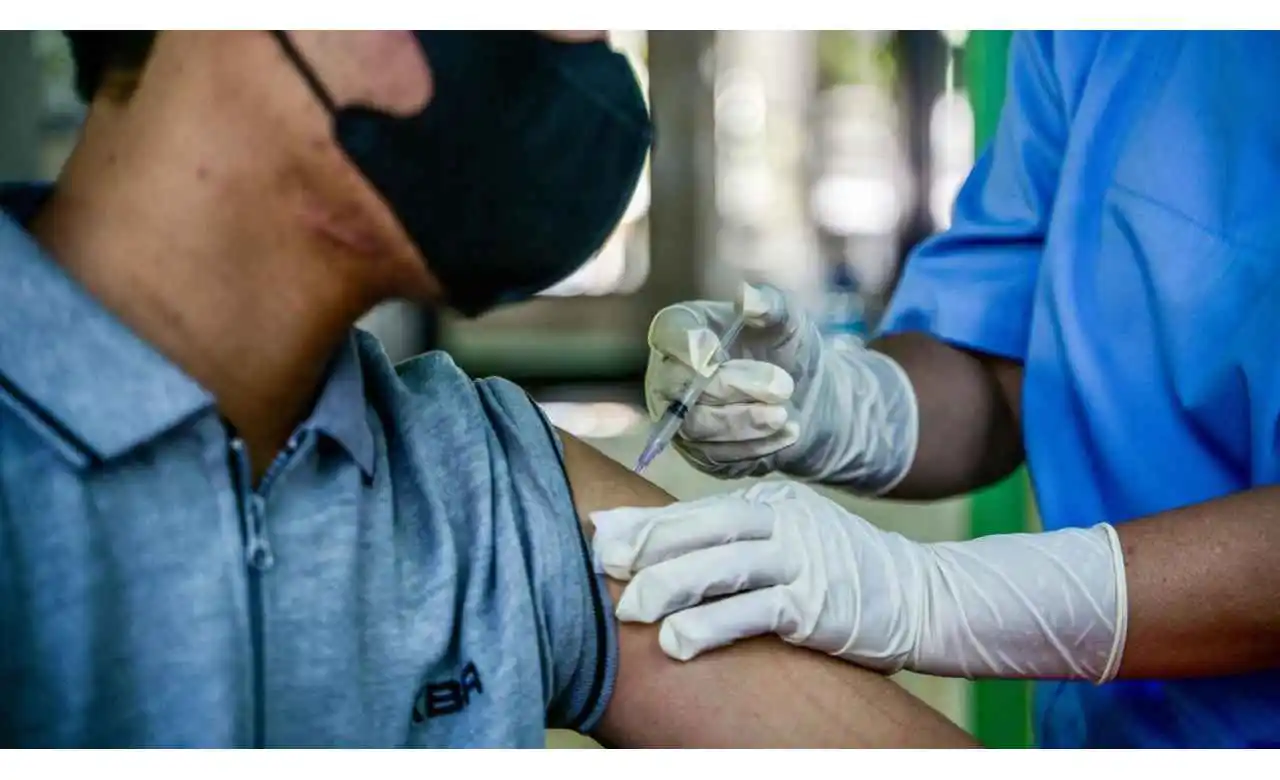
India saw a single-day rise of 313 new Covid cases, while the active caseload has declined to 2,041, the health ministry said on Saturday. Three deaths: two from Karnataka and one from Maharashtra were reported in the last 24 hours.
According to the ministry website, the number of active cases in the country stood at 2,331 on Friday. The number of cases of Covid had dropped to double digits till December 5, but it began to start increasing after the emergence of a new variant and cold weather conditions.
According to reports after December 5, the highest single day rise of 841new cases was reported on December 31, 2023, which is 0.2% of the peak cases reported in May 2021. Of the total active cases, a large majority of these (around 92%) are recovering under home isolation.
The currently available data suggests that the JN.1 variant is neither leading to an exponential rise in the new cases nor a rise in the hospitalization and mortality. India has witnessed three waves of Covid in the past with its peak incidence of daily new cases and deaths being reported during the delta wave in April June 2021.
At its peak, 414,188 new cases and 3915 deaths were reported on May 7, 2021. Since the pandemic started in early 2020, there have have been 4.5 crore people who have got infected and this has resulted in the death of 5.3 lakh persons in a total time span of four years.
According to the ministry data, the total number of persons who have recuperated from the disease are 4.4 crore with total recovery rate recorded is 98.81%. A total number of 220.67 crore doses of Covid vaccines have been administered in India so far.
Health
India registers 605 new COVID-19 cases and 4 deaths in last 24 hours
The number of people who have recovered from the disease has gone up to 4,44,81,341, an increase of 648 since Sunday morning. In Kerala a 70 year-old male with chronic obstructive pulmonary disease (COPD) and 81year-old male with T2DM and HTN, and in Karnataka, a 48 year old male with CA and TB died, while one person in Tripura succumbed to COVID.
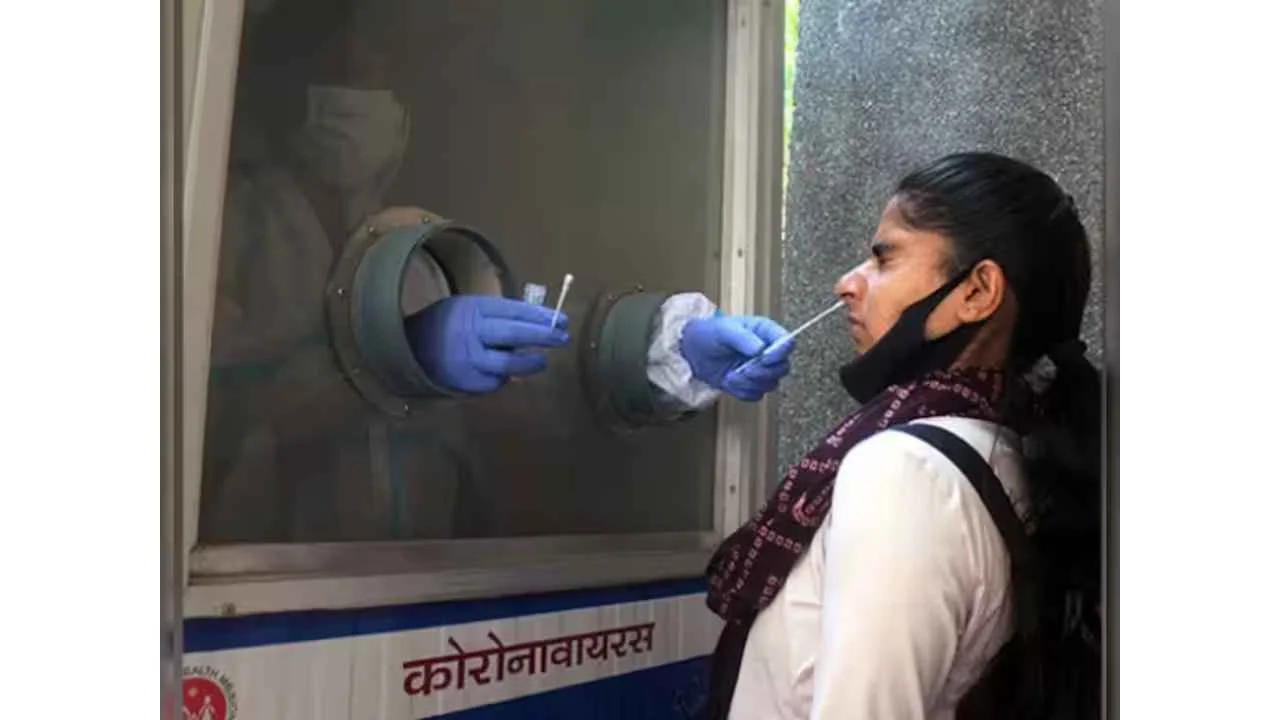
India recorded 605 fresh COVID-19 cases and four deaths in the last 24 hours. The active cases have increased to 4002, while India’s overall COVID case tally stands at over 4.5 crore (4,50,18,792). The death toll was recorded at 5,33,396 with four new deaths – two from Kerala and one each in Karnataka and Tripura – reported in the last 24 hours, the data updated at 8am stated.
The number of people who have recovered from the disease has gone up to 4,44,81,341, an increase of 648 since Sunday morning. In Kerala a 70 year-old male with chronic obstructive pulmonary disease (COPD) and 81year-old male with T2DM and HTN, and in Karnataka, a 48 year old male with CA and TB died, while one person in Tripura succumbed to COVID.
The Indian Council of Medical Research (ICMR) reported that 11,838 doses of the vaccine had been administered in the country till January 7. The data is a compilation of the Integrated Disease Surveillance Programme (National Centre for Disease Control), media bulletins and websites of various states at 8am on January 4.
As the winter season sets in, health experts are highlighting a sudden surge in viral infections, influenza, and COVID-19 cases. Dr Nikhil Modi, a senior pulmonologist at Indraprastha Apollo Hospital, pointed out that the decrease in temperature leads to increase in moisture in the air, low wind speed and also causes an increase in pollution levels. This contributes highly to various infections.
Due to the decrease in temperature the fog combines with the pollution in the air which further leads to the formation of smog. This condition of the atmosphere can cause different types of infections and difficulty in breathing. Both the state and the central government are keeping a close watch on the new Omicron Subvariant JN.1. J.N.1 is a Variant of Interest (VOI) which is under intense scientific scrutiny.
Health
India records 774 new Covid-19 cases, 2 deaths in 24 hours
The number of daily cases was in double digits till December 5 but it started to rise again amid cold weather conditions and after the emergence of new Covid-19 variant, JN.1.
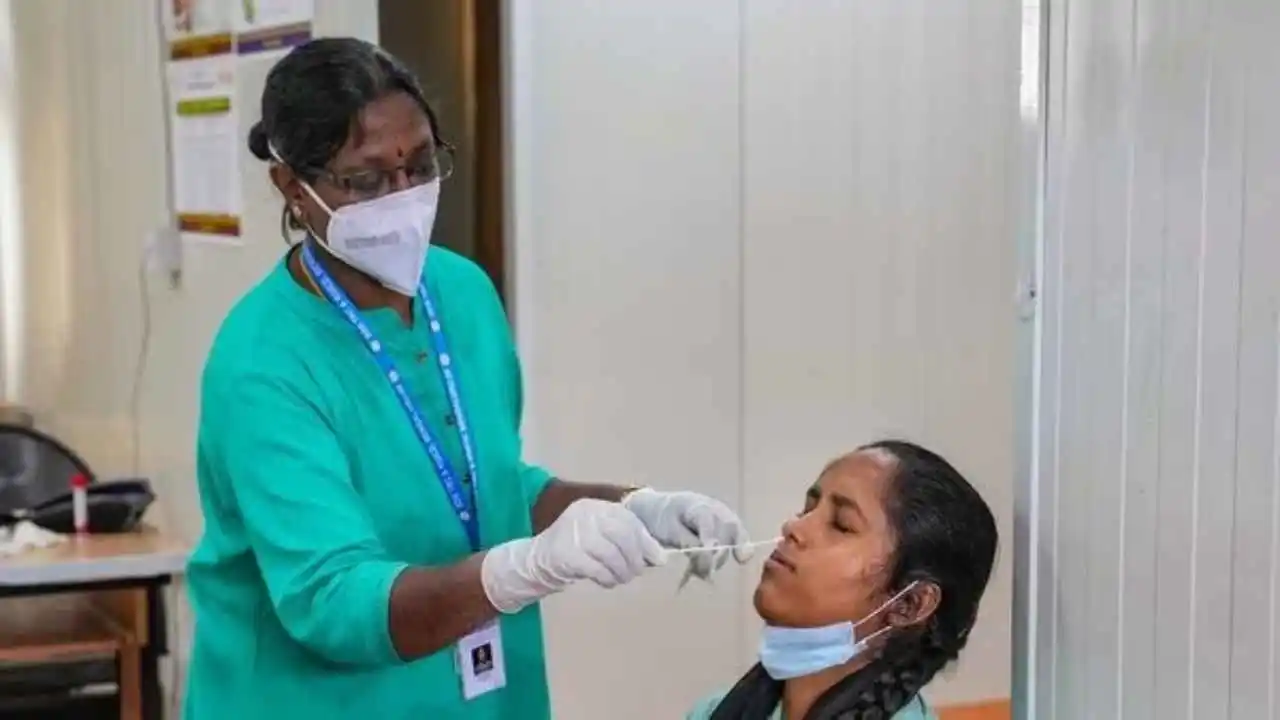
India on Saturday had a single-day rise of 774 Covid cases while the number of active cases stood at 4,187, the Union health ministry said. As many as two deaths – one each from Tamil Nadu and Gujarat were reported in a span of 24 hours. Of the 4,187 active cases, the majority (over 92%) are recovering under home isolation.
The number of daily cases was in double digits till December 5 but it started to rise again amid cold weather conditions and after the emergence of new Covid-19 variant, JN.1. The central government has asked the state government and union territories to maintain a constant vigil amid an upward trend in the number of Covid-cases and the detection of the JN.1 sub variant in the country.
According to reports after December 5, the highest single-day rise of 841 cases was reported on December 31, 2023, which was 0.2% of the peak cases reported in May 2021. A health official said that the JN.1 variant is neither leading to an exponential rise in new cases nor a surge in hospitalisation and mortality in the country.
The Karnataka government has made the Covid test mandatory for those with Influenza like illness (ILI) or Severe Acute Respiratory Illness (SARI). Karnataka Health Minister Dinesh Gundu Rao said more than 7000 tests are being done every day and the COVID positivity rate is 3.82%. The positivity rate in the state has not come down yet.
He said those with symptoms are being monitored and tested. Those who are in isolation at home have been told to take extra care. He added it is expected that the trend of decreasing Covid cases may start next week in Karnataka. India has witnessed three waves of Covid-19 in the past with the peak incidence of daily cases and deaths being reported during the Delta wave during April-June 2021. At its peak 4,14,188 cases and 3915 deaths were reported on May 7, 2021.
-
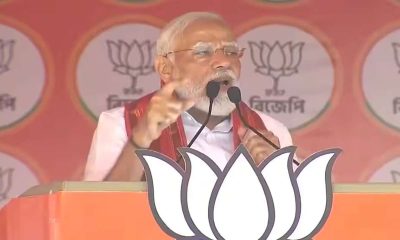
 2024 Lok Sabha Elections24 hours ago
2024 Lok Sabha Elections24 hours agoPM Modi says Congress leaders consider themselves above Lord Ram
-

 Trending23 hours ago
Trending23 hours agoNexon owner replaces broken side mirror with a plastic mirror, social media users say epic moment
-
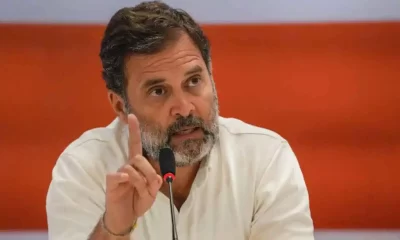
 2024 Lok Sabha Elections6 hours ago
2024 Lok Sabha Elections6 hours agoRahul Gandhi clarifies on wealth survey remark, says aim is to identify injustice
-

 Cricket news7 hours ago
Cricket news7 hours agoIPL 2024: Marcus Stoinis hits first IPL century as Lucknow Super Giants beat Chennai Super Kings by 6 wickets
-

 India News5 hours ago
India News5 hours agoRamdev, Balkrishna publish bigger apology in newspapers after Supreme Court’s rap
-

 Trending4 hours ago
Trending4 hours agoA waiter’s life: Social media users go emotional on watching viral video
-
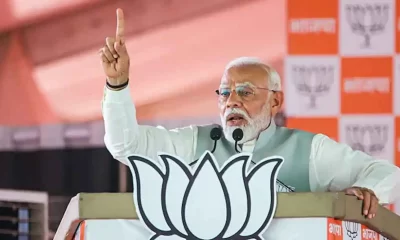
 2024 Lok Sabha Elections2 hours ago
2024 Lok Sabha Elections2 hours agoPM Narendra Modi slams Congress over Sam Pitroda’s inheritance tax remarks, accuses Congress of intending to impose higher taxes
-

 Entertainment52 mins ago
Entertainment52 mins agoMadhuri Dixit, Karisma Kapoor recreate Dil To Pagal Hai dance battle on Dance Deewane

